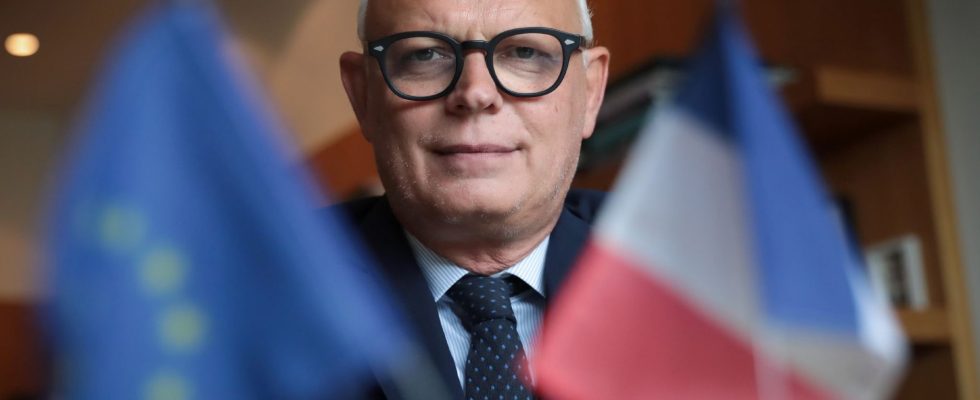Edouard has a problem: escaping reality, even in a novel, is not easy. So he seeks the solution in the secrets of creative writing. Edouard is one of the main characters of Counterfeiters. Edouard Philippe knows André Gide’s book well. And he has always relied on writing to help him think: that is what his work published this Thursday is for, Places that say (Jean-Claude Lattès editions).
Might as well warn the reader. No, it is not strictly speaking a thriller (we are definitely in a cerebral work), and yet we have to wait until the very end of the book for the decisive revelation to emerge: the former Prime Minister, the advisor of State, the former director general of the UMP, the former director of public affairs of Areva believed, “all his life”, that “being serious was enough”. It’s too late. The state of the world, the state of the country no longer allows us to simply be. We can measure the shift that this confession constitutes in the head, in the life of Edouard Philippe.
A dark picture
The unfortunate identity of France as he describes it underlines the seriousness of the situation, at the same time as it allows the author to escape the trial in moderation, or in naivety. At school, it’s five minutes to midnight. “Who could say that schools today in France train good republicans?” asks Edouard Philippe. He evokes “a crisis of subsidence, which we must fear will end in collapse” and assumes the search for “republican elitism”. The hospital is not better off, “the illness calls democracy into question”.
Justice does not satisfy many people, and since the former Prime Minister recounts his legal troubles linked to the management of Covid, we are entitled to hope that the judges conducted the investigation with a little more rigor than the gendarmes and police officers who, on the day of the search in Le Havre, went to the wrong floor and put seals on the door of the neighbor below.
The loss of reference points affects the whole of society, Edouard Philippe describes our fellow citizens upside down in the face of religions: “Some of the most anticlerical end up defending the right of women to wear the veil in the name of freedom and difference, and some of the more religious people are demanding more rigorous secularism in order to fight against Islam in the public space.” Even he does not escape the “giddiness” when he draws up the list of infrastructures that France would need to face globalization.
The planet may soon be deprived of humanity, which should not prevent us from saving individual freedom despite ecological constraints; democracy in danger (“Democracies never collapse suddenly, they give up”): the picture is gloomy. We understand that France is closer to the apocalypse than to appeasement, moreover “calming before the storm makes no sense” – another small counterpoint from the author.
The time for fireworks has passed
But how can we find a promise of dawn without promising the big evening? How could Edouard Philippe succeed where so many others have, if not failed, at least disappointed? “Since 1981 it’s been a nightmare,” he notes to show that beyond men, an entire system is failing. He recommends “a reading of our Constitution [qui] is not that of any president elected since 2007”, namely, quite simply, a president who presides, a Prime Minister who governs, and the construction of a coalition which respects the ideas of each – this time, it is the gap between the scale of the challenges and the classicism of the institutional response which calls out.
“In politics, an incarnation is always more powerful than a speech,” he wrote in Men who read. I am not who you think: that could be the subtitle of the book, and it is not insignificant in the construction of a candidate for the presidency of the Republic. Edouard Philippe had chosen to wear a beard because it gave him “a different look, perhaps more virile, perhaps less smooth”. There is no more beard, no more hair, no more eyebrows. The masks fall, the time for artifice is over.
Is it because illness “is often also the moment of a form of new lucidity”? The mayor of Le Havre is not content to say that being serious is no longer enough. He explains his relationship with transcendence, his quest for the sacred: “A family divided between paternal anticlericalism and maternal Catholicism, this taste for the sacred and this absence of faith is perhaps a timely synthesis or a compromise staff.”
Edouard Philippe learned “at 5 or 6 years old that presuming one’s strength was risky”, he who, pushed in a kind of Shopping Cart, hit a wall in the face: two months of plaster on his entire torso and arm. We must never forget where we come from when we want to go far.
